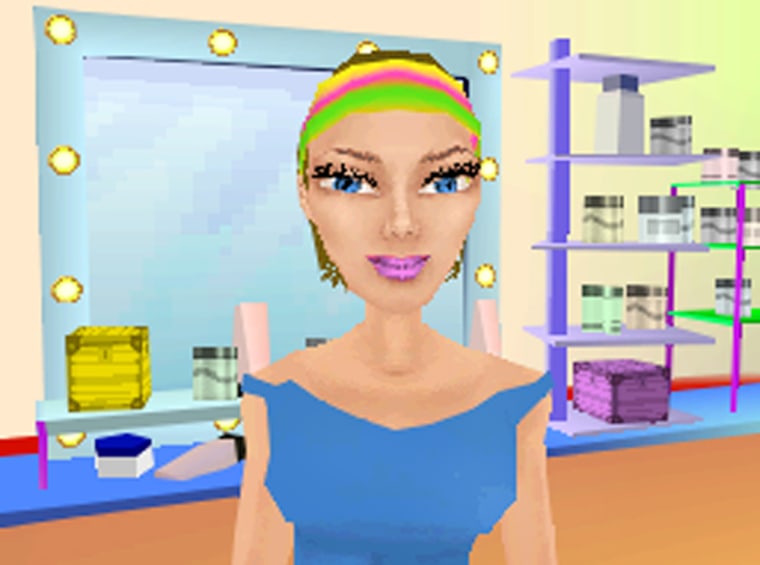If you’re looking for a lively debate, the topic of gender differences is a surefire winner.
In my last column, on Ubisoft’s games for girls, I asked readers to give me their take on gender-specific games. And I got some seriously strong opinions.
Take Allison Shefcyx, a self-described “girl gamer” who wrote that she found my story “quite depressing.” She has fond memories of a childhood spent playing games such as “Super Mario Bros.” and “Final Fantasy.” And she thinks girls deserve much better than Ubisoft’s Imagine series.
Imagine's "Babyz," she wrote, "my sole exposure to the franchise, is one of the worst games I have ever seen due to its repetitive gameplay and for having a completely unimaginative concept. Washing dishes with the DS stylus? Trying to rock babies to sleep?”
Matt Johnston wrote that his 11-year-old daughter has played some of Ubisoft’s “Petz” games, but tends to favor role-playing games or creative world-player games such as “Spore” and “The Sims.” He said that although these games are more mature than the so-called “girls” games, he would “vastly prefer a game that challenges her thinking than one that coddles stereotypes.”
“Another complaint I have about these ‘girls’ games is that they seem to be engineered to be, well, stupid," he wrote. "The user interfaces are always dumbed down, the plot lines don’t go anywhere, if they bother with a plot at all, and the overall experience tends to be a ‘dumb game for dumb girls.’ ”
I have to say that at least in the case of the Imagine games, I disagree with Johnston. I’ve played several of the games, and I didn’t find them to be particularly “dumbed down.” They were simple, but they’re also aimed at 8-year-olds. And they definitely got more challenging as I played.
Janet Lashbrooke, from Santa Fe, N.M., wrote that she’d recently been in Montreal, and had walked by the Ubisoft offices there as dozens of people were leaving for the day. “I didn’t see one woman leaving that place,” she said. “How could these nerdy young guys know what interests a girl?”
But for every outraged e-mail I received about the “princess factor” in the Imagine games, I got another telling me to, well, chill out.
“If they asked girls what they wanted and made the games based on their response, what is the big deal? Obviously, adult women are more concerned with this than they should be,” wrote an anonymous reader.
Adam Bliss doesn’t think we should blame Ubisoft for reinforcing stereotypes. They just develop what sells, he contends. He took issue with my wish for more games with female sports heroes, pointing out they don’t exist for the same reason that the NBA has a larger audience than the WNBA. “There are girls who want women’s sport games, but just not enough to warrant the development of a game.”
Jeff Conti echoed that sentiment. “Stereotypical? Of course. But the game companies did not create those stereotypes. Our culture did, and if there were no truth to them, the games wouldn't sell.”
Jessica Poer also agreed that the games were a bit stereotypical — but “honestly, we have those gender stereotypes for a reason. Girls are natural nurturers.”
“Go down the girl aisles of the toy store and what do you see? Babies, dress-up clothes, dishes. That is what they want to play,” she said.
Augee, from Houston, wrote that no matter what society says girls should strive to be, “most women do want to be mothers and take care of things,” and that my story reinforces the notion that being a mother is “just not good enough” anymore.
“This is coming from a professional woman in a typically male technical career, with no children,” he sniffed (if it were possible to convey a sniff in an e-mail).
Chuck Elton, the parent of two girls, wrote that he’s “just as concerned about so-called "experts" trying to force girls to be something other than girls.
“There is no reason that boys should be turned into girls or girls into boys until there is only one way to think, act, care and feel. Once that happens, the human race is pretty much through,” he wrote.
Stephanie Moran, of Orem, Utah, thinks I missed the point of girls in games in my story. “I don’t see why people are freaking out about this sort of thing when there’s games that totally exploit women as sex objects and are definitely marketed toward men,” she wrote. “That’s what we need to worry about, not girls wanting to play a dress-up game.”
But perhaps the most interesting perspective on the issue came from Stephanie Diaz, a woman who has been gaming since the 1980s.
“It is great that parents have more options when choosing entertainment for their girls that don’t glorify the usual stereotypes about women, but it is a sign of neglect if a child plays a game long enough for it to make an impression on their personality,” she wrote.
